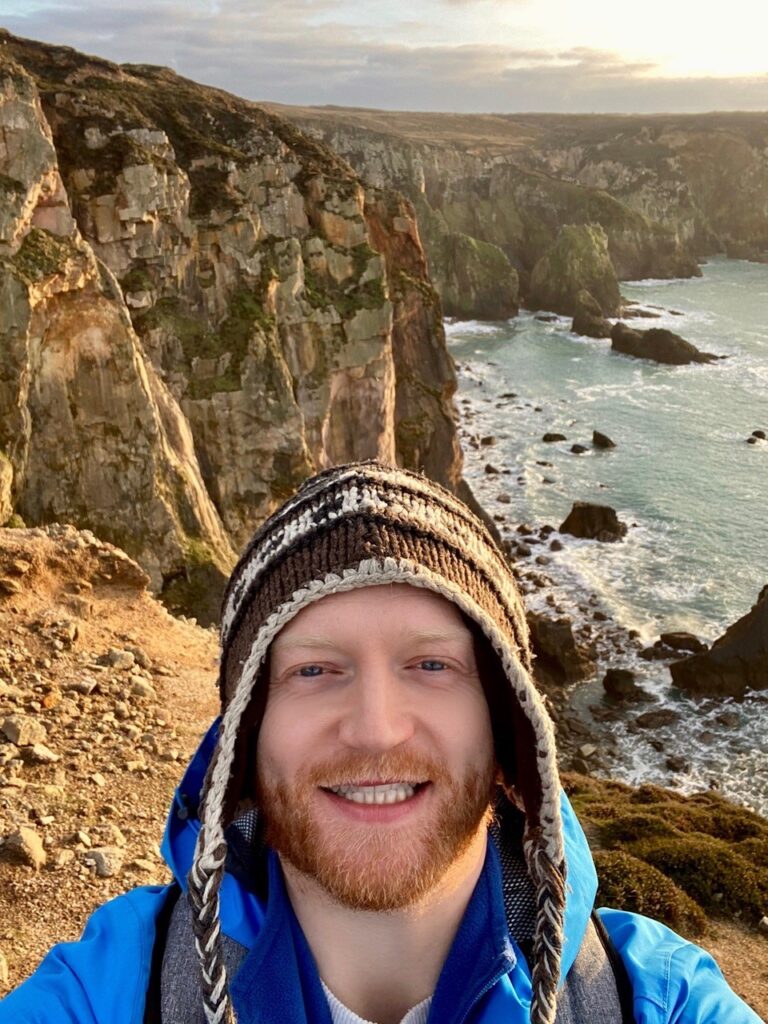
On November the 17th I and some of our geothermal researchers, Mahesh Kajendran and Dawid Ryback made our way down to Burlington House in London where the 8th UK Geothermal Symposium was being held at the Geological Society. Though having attended this conference before, this year’s one was particularly special to me as I was one of the co-convenors, and this was the first time it had been organised through the Geological Society’s Energy Group. The convenors of this year’s conference wanted to highlight the progress and increased activity in the UK geothermal sector this year and this was certainly reflected in a great turn out of over 120 people (both in person and virtual). The event played host to a wide range of people interesting in the UK geothermal sector, from earth scientists to regulation and policy makers, and from geothermal developers to potential financiers. We had folks from academia, the petroleum industry, government and more, showing the growing interest in a bright future for geothermal in this country.
At the conference we heard updates from some of the key geothermal projects being developed around the country. The United Downs Project updated us on the initial flow testing of their geothermal wells in Cornwall, which look very promising, and are looking at expanding operation to other sites in that part of the country. The Eden project updated us on how their geothermal drilling was going, having just completed their first well right before the conference kicked off. Both big Cornwall projects are exciting enough in their own right as they have now drilled both the deepest and the longest onshore wells in the UK! We heard interesting talks about how to upscale geothermal databases to help exploration and enhance geothermal target siting at the country scale, and on how to approach de-risking geothermal drilling, geothermal geological uncertainty, and reservoir performance. We got some great insight from the Geological Survey of Northern Ireland, which is looking into developing geothermal heat potential there, and updates on the GeoUrban research project looking at geothermal heating potential in Dublin, Ireland. We also heard talks on how geothermal heating from mine waters was progressing at sites across England and Scotland.
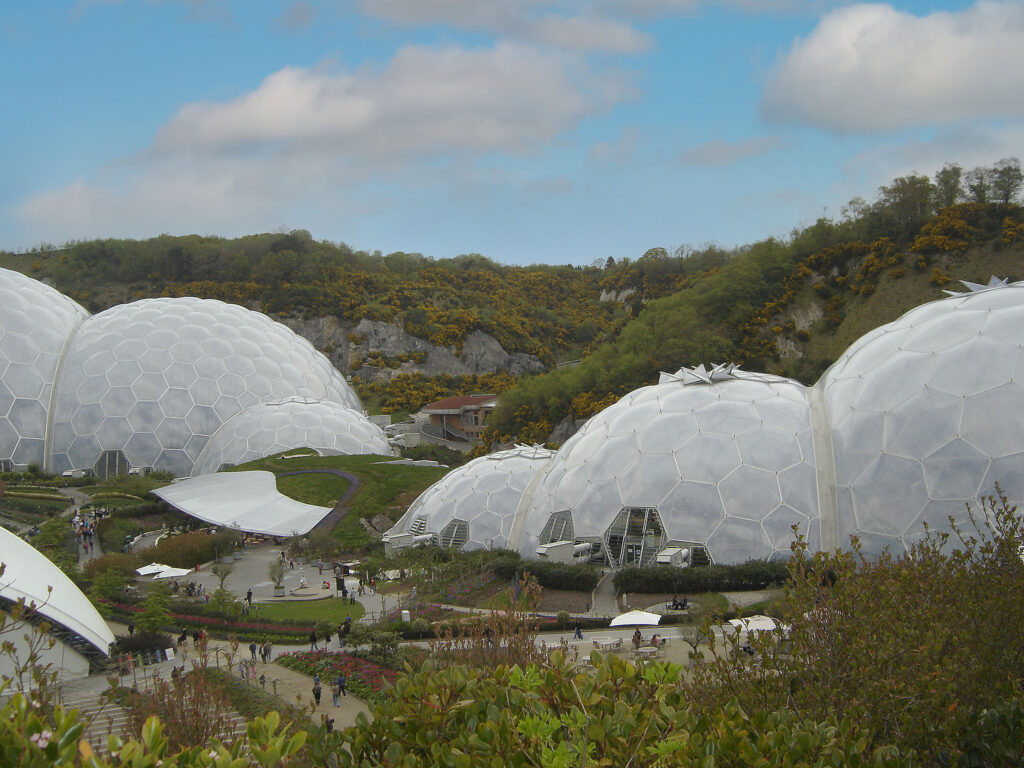
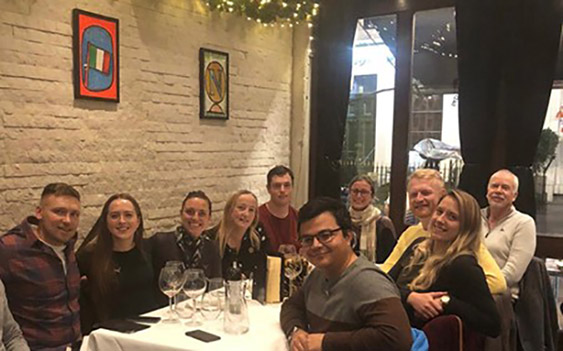
The day was filled with fascinating, informative talks, great discussions and question and answer sessions with an engaged and interested audience. It wrapped up with a panel discussion on geothermal policy and regulation which included Dr Corinna Abesser (BGS), Dr Sarah Blake (Geological Survey Ireland), Richard Day (Eden Geothermal Limited Chairman), and Helen Goodman (Durham University Energy Institute). This open session generated great discussion around what support from local and national government is needed by the geothermal community in the UK to enhance its development, as well as generating some ideas around how industry can contribute more to encourage the update of geothermal to decarbonise heating in the UK.
I left this conference feeling full of optimism for the future of this renewable energy resource in the UK. There is need and desire, from both industry and government, for geological, environmental, and social science research in UK geothermal. There is dialogue and idea generation between industry and government about how to facilitate geothermal development, and there is a wonderful and growing group of experienced, and up-and-coming, talented, enthusiastic people ready to make it all happen. Both our own University of Liverpool researchers Mahesh and Dawid had this to say about their experience at the conference:
Mahesh: “As an early PhD student, I’ve been told great things about conferences by my peers and supervisors, ‘they’ll motivate you so much’, ‘you’ll come home with refreshed enthusiasm and drive to complete your work’ and ‘ooh this one’s a really nice one too, you’ll have so much fun!’ – happy to report all these things are true. Attending the 8th UK Geothermal Symposium was a unique and motivating experience. The conference provided great opportunity for young researchers to meet the wider geothermal community of scientists, investors, developers, and policy makers who share the same goals and concerns. This broad range of attendees made networking the most useful aspect of the conference. Being able to informally question company professionals and ask academics for practical advice gave me substantial insight for my own work and a chance to find potential future collaborators. In addition to community, exposure to innovative projects and peripheral research means that you’ll get to hear the latest discoveries and theories, which you’re unlikely to find in existing publications. Reflecting on the conference, I thoroughly enjoyed it, learned tonnes, came back exhausted but definitely enthused.”
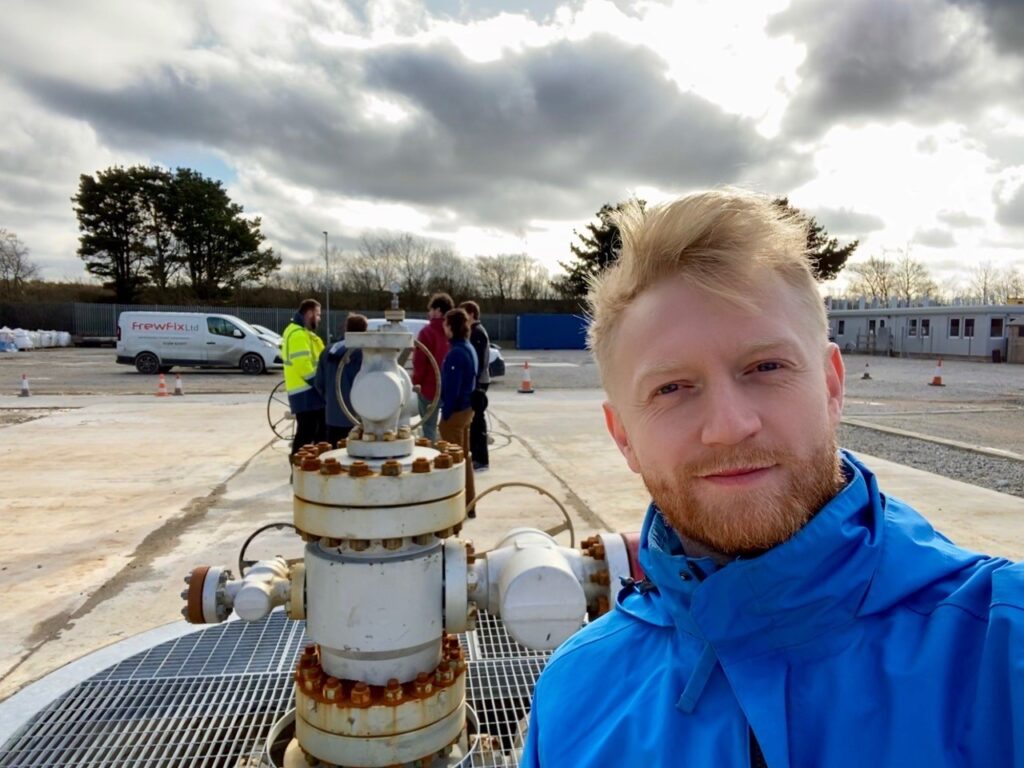
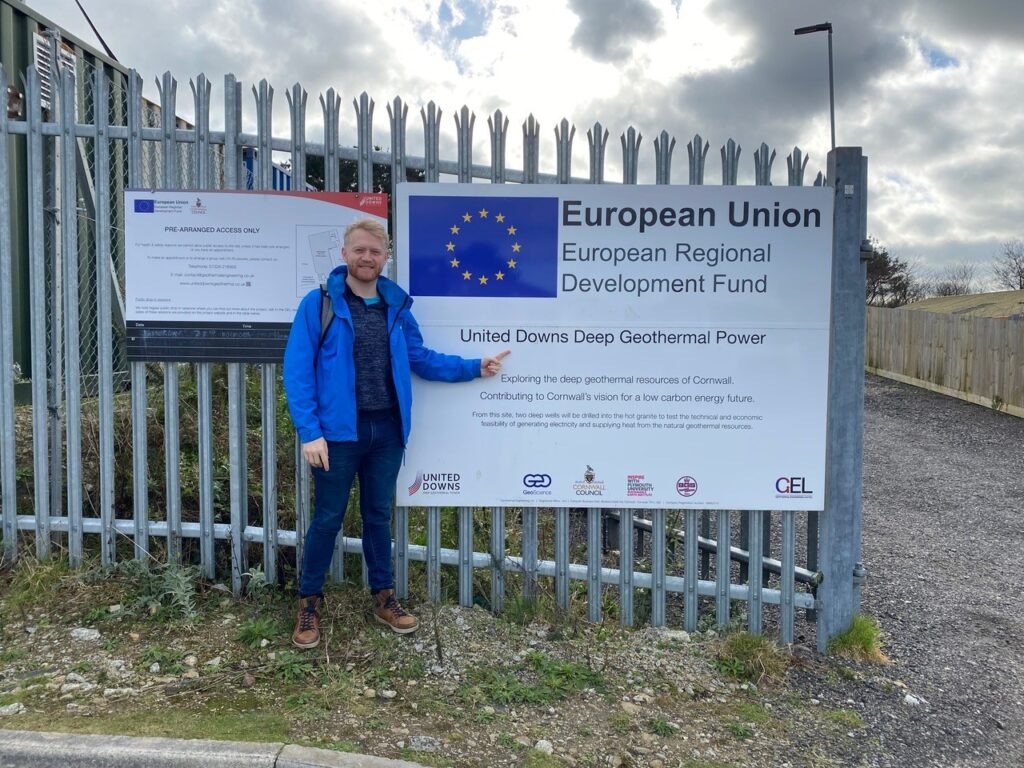
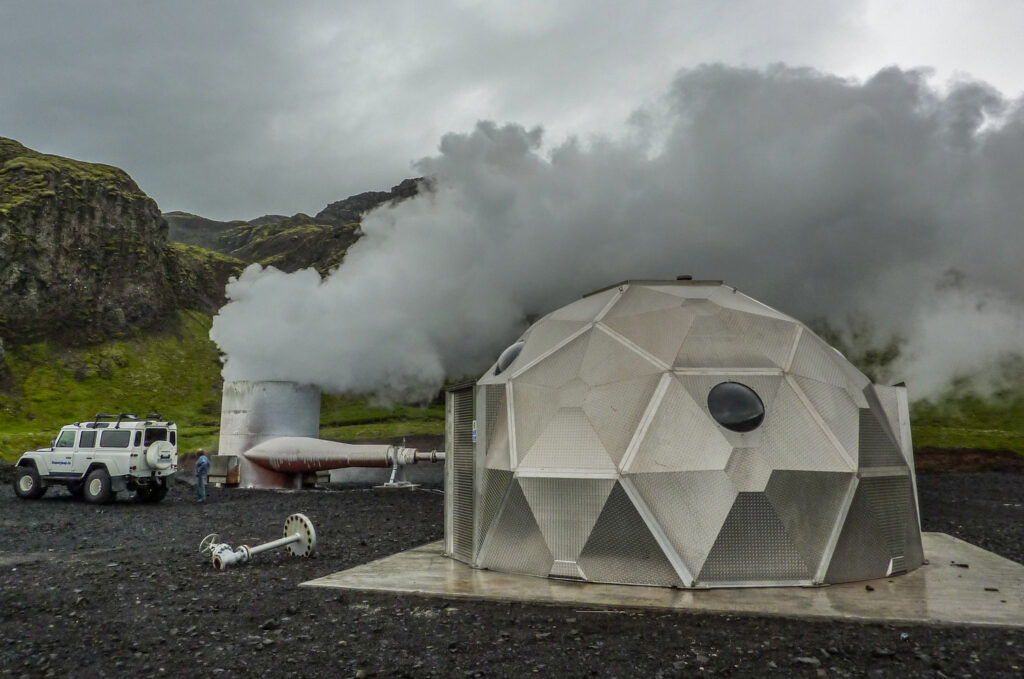
Dawid: “Attending the 8th Geothermal symposium at the Geological Society was a real treat for me as a newly embarked PhD researcher within the geothermal space. The whole event oozed with insights on the progress made, challenges overcome, and what still needs doing. Due to the friendliness and rapport shown for anyone who attended, colleagues from all levels and backgrounds were able to comfortably chat with each other, extending discussions about the presented talks and even openly and politely debating each other’s approaches. This tightknit community inspired me in numerous ways, presented to me the challenges ahead, and showed me the endless opportunities to contribute for individuals who seek to do so. I am hoping to get involved with organising the 9th Geothermal symposium next year and continuing to communicate and learn from the fascinating people in this geothermal community who hold similar values and interests. I would encourage everyone, from all backgrounds and with various skillsets to come along and be inspired by individuals working at the forefront of geothermal resources development. Transitioning the energy sector requires all hands-on deck.”
I felt that the UK geothermal community is vibrant and keenly cognisant of what it can contribute to the energy transition. It is working hard, taking steps to keep its eye on making sure all can engage and contribute to this. For example, the night before the conference WING (Women in Geothermal) UK hosted a great social evening where members from all walks got together to network and catch up. Finally, it was a proud moment for the community when Lucy Cotton, from GeoScience Limited, was awarded the Geological Society of London Energy Group’s Early Career Medal in recognition of the fantastic work Lucy has contributed to the geothermal sector in the UK, both her science and her science communication and community engagement. Geothermal seems to be on the rise in the UK and I am excited to work towards setting up this conference again in 2022 and seeing where we all get to in a year. Watch this space!
United Downs Deep Geothermal Power Project.
Click on the image to the right to see the YouTube clip: ‘Drilling starts at the United Downs Deep Geothermal Power project’.
For more information about the United Downs project click here.


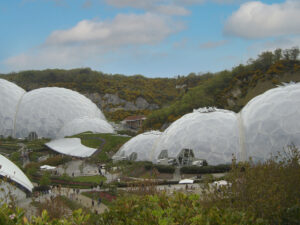
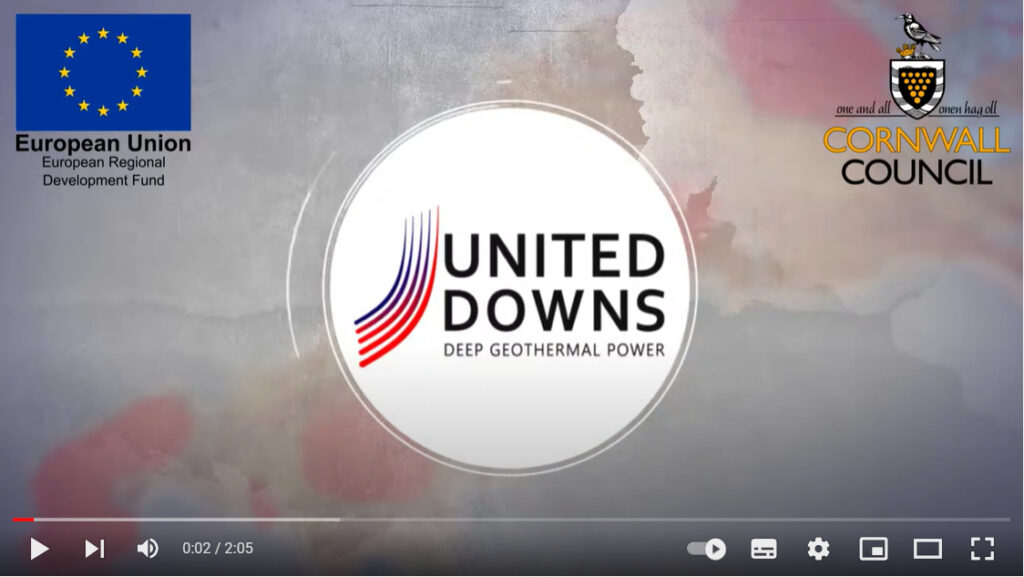
Hi David
I’m interested in what was said about the UD1 production testing at the meeting. It seems that GEL have spent quite a bit of time injecting into the production well but only done 2-3 days of production testing in the 2.5 years since the well was drilled.
Given that they’ll need to circulate the system and produce from UD1 for 10-20 years this seems very odd. Unless they have serious short-circuits (not good) there will have been no chance to characterise the inter-well volume for heat exchange area or pressure interference between the injector and producer?
Best wishes for Xmas and 2022
Bill
Hi Bill,
I have forwarded your comments to David so I hope he will be able to answer your query.
Regards,
Maggie